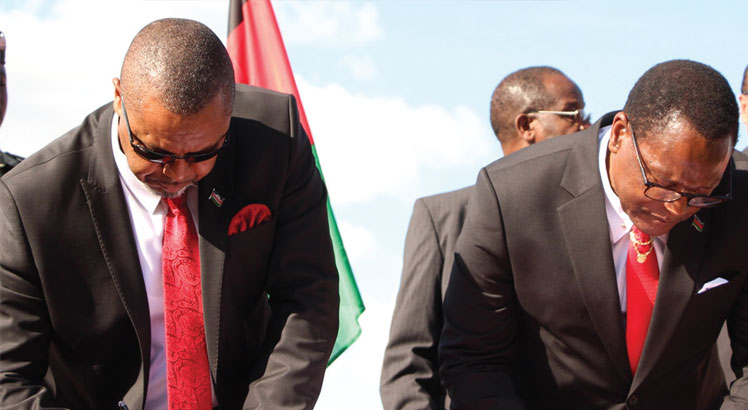Minister of Agriculture Sam Kawale has conceded that implementation of this year’s Affordable Inputs Programme (AIP) is complicated due to changes in economic fundamentals and the increase in global fertiliser prices.
Delivering a Ministerial Statement on the Status of AIP Implementation in Parliament in Lilongwe yesterday, he said the 25 percent devaluation of the kwacha in May this year coupled with the impact of the Russia-Ukraine war, which has disrupted the global supply chains and the Covid-19 pandemic have pushed the cost of fertiliser to more than double.
The programme, budgeted at K109.4 billion, has left Capital Hill dependent on donations due to logistical glitches.
The decision to solicit donations has raised questions of why Malawi Government chose to beg when resources for procurement of fertiliser and other inputs were allocated.
But Kawale said when the budget was approved in March, a 50 kilogramme (kg) bag of fertiliser fetched between K27 000 and K34 000. However, the same bag is now costing between K60 000 and K78 000.
Kawale: Devaluation
affected AIP budget
Said the minister: “The Government of Morocco has supported us with 10 000 metric tonnes [MT] of Muriate of Potash [MOP]. Malawi, however, does not use this type of fertiliser for maize production.
“Therefore, this fertiliser is to be blended by our two fertiliser blenders in the country, that is, Malawi Fertiliser Company Limited and Optichem (2000) Limited to make 51 500 metric tonnes of basal dressing fertiliser. This will be used to reach out to 1.03 million beneficiaries.”
The other donations, Kawale said, were 20 000MT of NPK from the World Food Programme which will reach out to 400 000 beneficiaries.
“Through a loan from African Development Bank, the ministry will procure 20 144MT of fertiliser, 10 072MT of NPK and 10 072MT of Urea. This will be used to reach out to 201 440 beneficiaries,” he said.
The blending to cost taxpayers about K40 billion will be drawn from the AIP allocation. He said Malawi Government will buy 42 000MT of additional raw materials to be used for blending.
But the minister did not tackle the issue surrounding a botched K750 million fertiliser contract which cost his predecessor Lobin Lowe alongside then Deputy Minister of Agriculture Madalitso Kambauwa Wirima their jobs.
Kawale assured the House that all the 2.5 million beneficiaries will be reached with inputs as there is 50 000MT of fertiliser coming as a donation and Smallholder Farmers Fertiliser Revolving Fund of Malawi (SFFRFM) is also procuring fertiliser using the K97.5 billion allocation from K109 billion budget.
In an interview yesterday, Malawi University of Business and Applied Science associate professor of economics Betchani Tchereni said indications point to the fact that the AIP is simply unsustainable. He said government should move with speed to exit the programme.
He said: “Our resource envelope is rather too small and going forward the President’s statement that we must be looking for an exit strategy is great. Unfortunately, a programme such as this has political repercussions too.
“In any case, the economy cannot continue to depend on this programme and that is why Malawi2063 is clear on agricultural productivity understanding definition of the gross reserves assets explicitly excluded both.
Minister of Finance and Economic Affairs Sosten Gwengwe in an interview yesterday described the news as positive for the country, saying it reflects government’s commitment to corrective measures to remedy the situation and strengthen the RBM’s reserve management.
He said: “Between 2018 and 2019, we got three disbursements of funds from the IMF which, were not supposed to get. We cheated our way to getting the money from IMF by providing that we were not accurate. This cost us and we were supposed to pay back this money.
The ECF arrangement was approved on April 30, 2018 for a total amount equivalent to $112.3 million to support the country’s reform agenda.
The post Minister blames AIP mess on economic factors appeared first on The Nation Online.
 Moni Malawi
Moni Malawi 

